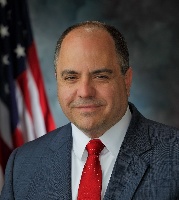Wyoming Criminal Lawyer, New York
Sponsored Law Firm
-
 x
x

Click For More Info:
-
Cohen & Bernstein, L.L.C.
1360 Clifton Ave #309 Clifton, NJ 07012» view mapCriminal Defense We’re In this Together!
We work hand in hand with our clients to ensure all of your questions are answered and progress through your legal issue is seamless.
800-978-7341
Raymond Paul Sciarrino
✓ VERIFIEDCriminal, Real Estate, Personal Injury, Traffic, Estate
Licensed: 22 Years
Sciarrino & Sciarrino, P.C. is a criminal law firm serving Rochester and the surrounding areas of Livingston County and Wyoming County. For more than ... (more)
Gary Michael Phillips
Defect and Lemon Law, Wrongful Termination, Divorce & Family Law, Criminal
Status: In Good Standing
Fares Ahmad Rumi
Landlord-Tenant, Divorce, Child Custody, Criminal
Status: In Good Standing Licensed: 21 Years
Norman Peter Effman
State & Local Agencies, Criminal, Prisoners' Rights
Status: In Good Standing Licensed: 56 Years
Adam William Koch
Other, Government, Criminal, Civil & Human Rights
Status: In Good Standing Licensed: 16 Years
Vincent Orsland Ladd
Real Estate, Divorce & Family Law, Criminal, Bankruptcy & Debt
Status: Inactive Licensed: 58 Years
 Lindsay Bernstein Clifton, NJ
Lindsay Bernstein Clifton, NJ Practice AreasExpertise
Practice AreasExpertise

